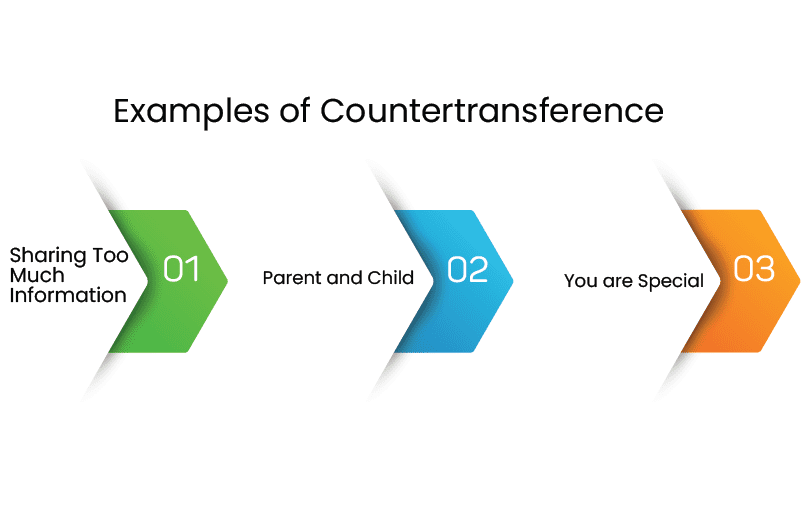Relationships between clients and therapists are undoubtedly unique. Although therapy is often thought of as a service, the developed therapeutic relationship goes far beyond this concept.
Clients are provided with a safe space and unconditional compassion by therapists, where they feel comfortable disclosing their emotions and sharing personal issues. An intimate relationship [1] like this creates the perfect setting for feelings of attraction.
How to Tell if Your Therapist is Attracted to You, and Why It Matters
Clients are often attracted to their therapists, but many don’t consider that the same could happen to the therapist.
“Therapist sexually attracted to client”: good or bad?– is a widely debated topic. The classical psychotherapists [2] believed that this attraction blocks the therapist’s understanding of the patient. However, modern therapists believe that this provides insight into how the patient affects other people and can help in the therapeutic process.
Therapist-client relationships are incredibly intense, and social norms don’t always apply. In any other relationship, actions such as paying attention or showing empathy can be perceived as romantic interest; however, this is very much the therapist’s job.
So, to answer the question, “Is my therapist attracted to me?”– the context of their actions is crucial. The actions may include a shift in boundaries, such as allowing sessions to go overtime or taking your calls between sessions, or if they appear to seek out opportunities to touch you deliberately.
What do Countertransference and Transference mean?
Transference occurs when the client’s feelings for someone else are redirected to the therapist. In contrast, countertransference occurs when the therapist projects his or her feelings and personal experiences onto the client.
Transference [3] is when the client becomes fixated on the therapist. More often than not, this fixation is sexual. It involves more than just acknowledging the client’s attractiveness to the therapist and can lead to inappropriate behaviour on the client’s part that violates therapeutic boundaries. Transference is considered an essential step in psychoanalysis.
Countertransference [4] occurs when the therapist reacts to the client and may occur as a result of the client’s transference. Therapists often have thoughts and feelings based on their own unexpressed psychological needs and conflicts that are revealed when their clients share some characteristics with someone from a formative relationship in their lives.
Therapist-client relationships can be negatively affected by countertransference, and progress can be blocked. Transference and countertransference are essential topics that the therapist should inform the client about.

Examples of Countertransference
Countertransference occurs in a variety of ways, including:
- Sharing Too Much Information: The therapist may start sharing extremely personal information in too much detail. This “opening up” may not be beneficial to the client’s treatment.
- Parent and Child: The therapists’ childhood experiences, or their experiences with their children, can get projected onto the clients. By challenging the client, the therapist starts to make the client feel worse than when they started.
- “You are Special”: The therapist mentions that one client is unique and different from the others. Romantic feelings can develop, and a desire to start a sexual relationship may be generated.
Mutual Attraction in Therapy: What a Therapist Should Not Do?
An expert therapist will construct an environment where certain lines are inviolable, and 100% of the attention is devoted to your treatment.
However, the lines may become blurry during the course of treatment.
With transference, a vital part of the healing process, and countertransference as a byproduct, mutual attraction is a strong possibility in therapy.
The focus of therapy is on the clients’ emotional experiences and inner turmoil. When a therapist admits to having feelings for a patient, the patient begins to imagine the two as a romantic couple. The focus of the experience shifts to external circumstances. As a result, the very aim of therapy is sacrificed.
If the patient wants to talk about their own attraction, the therapist should recognize this and gently lead them back to the source of the draw and how it got started. With this acknowledgment from both ends, the client can understand their motivation, and once again, also the focus is returned to them.
Read more about: 8 Things To Do When You Feel Feeling Unwanted In A Relationship
“What are the Signs My Therapist is Attracted to Me?”
What makes you think, “I think my therapist is attracted to me.”? It is often suggested that clients experiencing transference may feel this way regardless of countertransference taking place.
The following list provides some signs your therapist is attracted to you:
- Changes in Therapeutic Sessions: Extending the sessions unnecessarily, reducing the fee for your benefit.
- Behavioural Changes: Dressing a certain way, moving closer to you during sessions, and seeking to touch you more frequently. Aspects of your life are also avoided for fear of upsetting you, hampering your recovery. They ask to meet with you outside of therapy without reason.
- Sympathy instead of Empathy: The therapist starts to share the clients’ feelings (sympathize) rather than understanding (empathize). The sympathy may be highly exaggerated.
- Personal Disclosure: Therapists often begin to disclose information about themselves to clients. It is common for them to cry.
- Judgment: They make evaluations of your life and the people in it, regardless of your opinions. They start giving clients advice instead of letting them come to their conclusions.
How to Deal with Countertransference in Therapy?
For a client experiencing countertransference from the therapist, it is essential to have open communication.
- Discuss: Feel free to talk to the therapist about your feelings.
- Explain: If their actions and behaviour make you uncomfortable, you have to let your therapist know. Considering that therapeutic interactions are unique and every relationship is novel, it is possible that they simply do not have a good sense of how best to interact with you yet.
- Transparency: It is crucial that you are honest with your therapist and find out if you can still work together or if maybe he can help you find another therapist. As difficult as it can be to be open and honest, it is the best thing you can do for your well-being and that of your therapists.
Openly discussing “romantic” countertransference can be very effective. If your therapist assertively expressed and enforced firm boundaries while exploring these dynamics, imagine how helpful your sessions would be.
How to Deal with Countertransference as a Therapist?
Countertransference can be managed most effectively through awareness.
- Acknowledge: Therapists can prevent damage by recognizing countertransference as soon as it starts happening. When dealing with clients, you must be mindful of your feelings. Is the client’s information critical to you? Whenever you are dealing with a client, stay neutral and mindful of your reactions.
- Personal Life: A therapist whose personal life is hectic or stressed can easily give in to countertransference. To work with clients effectively, therapists must practice self-care and have a positive mindset. Make sure that you and your client are aware of each other’s true intentions.
- Consult: If you find yourself exhibiting defensiveness or reactivity towards your client’s situation, contact your peers in the mental health field. They can help you effectively deal with countertransference.
- Refer to Others: The therapist should always prioritise the patient. Clients with whom they are having difficulties avoiding or managing countertransference should be referred to another therapist.
To assume that a therapist will never have a countertransference reaction is unrealistic. It’s additionally helpful for therapists to identify the client’s issues and differentiate between their triggers and those of their clients.
References:
- Wikipedia contributors, “Intimate relationship,” Wikipedia, The Free Encyclopedia, 07-Jul-2022. [Online].
- “Classical Therapy,” Psychotherapie – Willi Rös | Psychotherapie, 01-Aug-2014. [Online].
- Wikipedia contributors, “Transference,” Wikipedia, The Free Encyclopedia, 01-May-2022. [Online].
- “Countertransference,” GoodTherapy.org Therapy Blog, 09-Oct-2012. [Online].











